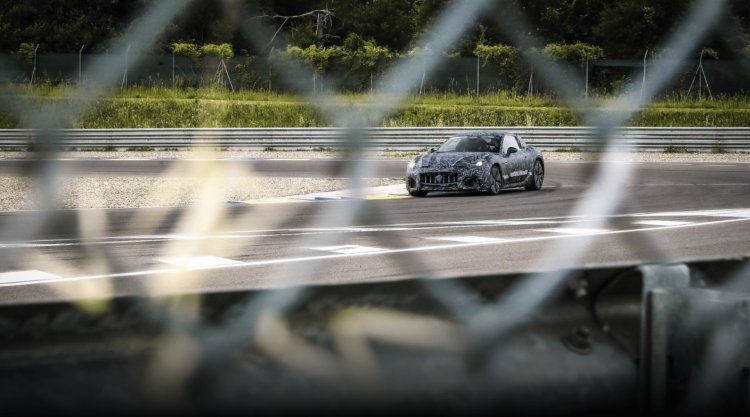Electric future: Maserati GranTurismo

Maserati intends to provide electric versions of the whole line of automobiles starting next year. Maserati CEO Davide Grasso called the company's transition to a fully electric model by 2030 a "decisive moment."
Maserati wants to deliver electric versions of all of its vehicles by 2025, beginning with the new GranTurismo EV, which has more than 1,200 horsepower.
The GranTurismo "Folgore" will be the legendary Italian brand's first totally electric vehicle, owned by Stellantis, the former Fiat Chrysler. Its top speed is estimated to be around 305 km/h, and it will accelerate from 0 to 100 km/h in less than three seconds, according to Maserati.
Maserati will follow the GranTurismo with the totally electric mid-size Grecale SUV and the Grancabrio GT vehicle. Maserati also intends to introduce electrified versions of its MC20 supercar, Quattroporte sedan, and Levante SUV by 2025.
Maserati CEO Davide Grasso highlighted the electric vehicle shift, including the company's goal of being totally electric by 2030, as a "decisive moment" for the more than century-old carmaker.
Almost all major automakers, particularly luxury brands like Maserati, expect that by 2030, electric vehicles will account for the majority, if not the entire, of sales.
The elegant body of the four-seater coupe is depicted in preview photographs of the GranTurismo electric vehicle unveiled on Thursday.
The estimated prices of the new electric vehicles have not been published by Maserati. His current traditional versions range in price from approximately $78,000 to more than $ 200,000.
Tesla's Gigafactory in Berlin officially opened
Once it reaches full production capacity, up to half a million vehicles will be assembled at this location each year, which is more battery-electric cars than Volkswagen sold worldwide last year.
Also, the Gigafactory will produce about 50 GWh of battery capacity per year, which is more than all other battery factories in Germany. The vehicles produced here will primarily be intended for the European market, so Tesla will no longer have to deliver them here from China, as has been the case lately.
The factory in Berlin was supposed to open on July 1 last year, but everything was postponed due to regulatory demands and protests from local environmental activists who protested against its construction. For these reasons, Tesla had to obtain additional permits and prove that the Gigafactory will not pollute the air and water in its environment.




























